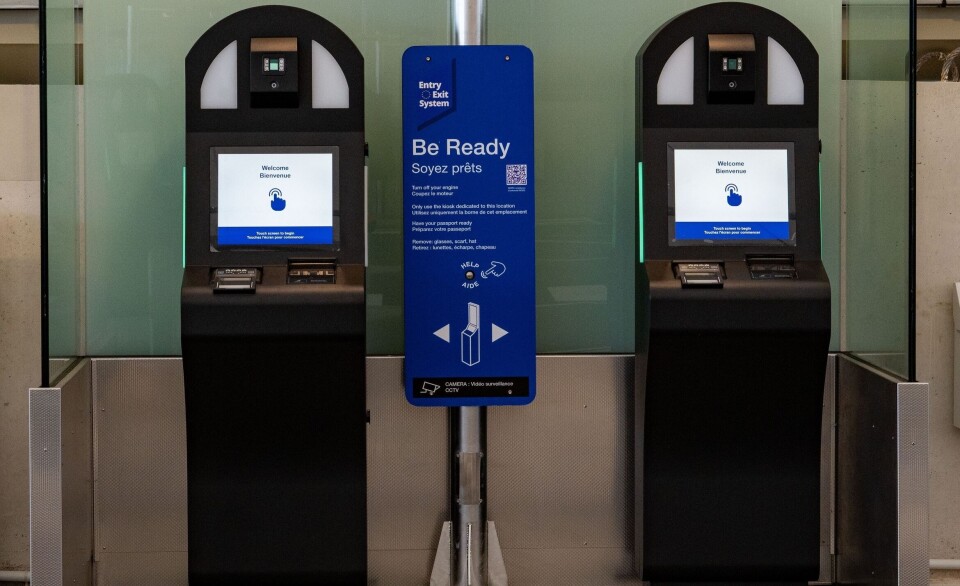-
Classic French recipe with an exotic twist: caramelised onion soup
A dish inspired by the travels of two Paris chefs
-
HPI final season: the end of a French TV phenomenon
Comedy-thriller starring Audrey Fleurot that gripped France airs final episodes
-
Five famous historical French figures who were exiled to Britain
From Voltaire to De Gaulle, we share the stories of five exiles who fled across the Channel
Tune in to French regional accents - how many do you recognise?
We analyse different regions, their accents, and even their different spellings

A major (and highly recommended) part of living in France is learning the language - but how do you get on with regional French accents? Have you got one?
The country has a bevy of accents, which range from lilting to soft, to much more intense.
Yet since the early 20th century France - being a very centralised nation founded on the principle of Republicanism - has had a policy to tame regional accents.
Regional languages were forbidden from being spoken at schools until very recently, and radio and TV show hosts typically do not have strong accents, unlike in the United Kingdom or the United States, where accents and regional identity are (at least today, if not always in the past) more commonly defended and used with a certain pride.
The French media landscape has almost killed any accents in journalists who tend to report the news, leaving the (wrong) impression that French people have a ‘single’ voice.
Here we take a tour of some of France’s most distinctive accents.
South-West
Popular French figures with an accent located in the southwest of France are often seen in sports, as France is one of the strongest rugby nations in the world and the Basque territory is the home of many great athletes.
For example, Didier Deschamps, France’s football team coach, is a native of Bayonne (Pyrénées-Atlantiques) and while his accent is not extremely pronounced, it is distinctive enough for most French people.
Mr Deschamps recently spoke before MPs to give his testimony on reported malpractice at the Fédération Française de Football (FFF).
Listen to how his accent pronounced the letter R with more emphasis in this video. Mr Deschamps starts speaking at 5’08:
Similarly, Jean-Michel Apathie - a rare French journalist to keep an accent as part of his identity - is one of the most visible faces with the most pronounced Basque accent, whose letter R is very pronounced - listen to him speaking here (he starts at 1:30):
Mr Apathie has the distinctive sharpness of the R letter (his ‘très longtemps’ at 1:44) but also carries a lot of final euhhhh sound to finish most of his sentences. Some of Mr Apathie’s words also carry a slight G sound such as his ‘longtemps‘, in contrast to the traditional French accent, which would not pronounce the G.
Fabien Galthié, France’s rugby coach and a native of Cahors (Lot), also has a distinctive accent from the south-West.
He gave French radio RMC his first post-World Cup defeat interview last Wednesday (November 8):
Mr Galthié has various intonations on specific words, such as chemin (path, trail) with a final slight G (at 4’09 in the video) or the connection he made three times (around 4:19) between the word plus and the word on that - even though it is not incorrect - would not be emphasised by Parisians or Bretons, for instance.
He also punctuates his sentences with -euh sounds.
One last example was best exemplified in this video, showcasing the difference between someone from Paris and Toulouse (starts around 2’09):
Northern France
Northern France is known for its Picard or Ch’ti accent.
The first Ch’ti were French World War One soldiers from Northern France, who were named that way by other French soldiers because the latter noticed the northern accent carried a lot of -ch and -ti sounds, hence the word Ch’ti.
Ch’ti is nowadays nationally recognised by French people, mainly from the success of Bienvenue Chez Les Ch’tis, a 2008 French comedy that attracted 20 million French people into the cinemas and had an Italian (Benvenuti Al Sud) remake.
Here is a report from France 3 showing several people speaking Ch’ti:
While Ch’ti has also blended into a regional language with specific words, the accent has a lot of -Ch (pronounced cheu, a sound in-between chatter and shatter) and ts sound (like in Tsar).
Ch’ti is also famous for ‘eating’ words and bending letters. The lady appearing at 0:32 in the video above goes “t’va” when saying “tu vas” and “t’sais” when saying “tu sais”, swallowing the U sound. Similarly, she swallows the letter L when she says “Maman, elle ne t’aime pu.” The A’s of maman are pronounced like O sounds.
The video has subtitles to help you follow along with what the people are saying; indeed, this is one of the most difficult accents to understand, even for French people.
Brittany
The most distinctive Brittany accent is associated in many French peoples’ minds with an image of a ‘Bigoudène’, a woman dressed in traditional Breton attire with a large headdress. The most famous ‘bigoudènes’ are the women from TV adverts for Tipiak, a food brand that specialises in semolina.
One of the Tipiak commercials' bigoudène ladies - Alexia - was followed for a report.
Alexia speaks more at 3:24. Her accent has a lot of ‘ben’ and ‘hein’, which serve as filler words.
South-east accent
The south-east accent - mainly from Marseille - is perhaps France’s most well-known and most distinctive accent. It is often included as part of the very first three or five things to define French people from Marseille.
The most prominent sound of the south-east accent is the -tch sound (such as in cheating in English). It is often qualified as an ‘accent chantant’ (singsong accent) It also puts more emphasis on the final E letter, such as in ‘La Bonne mère’.
Popular comic Patrick Bosso, who was born in Marseille, is one of the French figures with the distinctive Marseillais accent.
In the following video, Mr Bosso speaks with a nasal accent where words such as franchement (0:19) and sincèrement (0:21) are more pressed on the -fran or the -sincère parts than in other accents.
Alsatian
Very few people with an Alsatian accent have made their way on the national scene (for example in TV or films). Perhaps as a result, people in France tend to be less accustomed to people with an Alsatian accent.
Robert Wurtz, a former football referee, is one of the more prominent with an Alsatian accent. MP Bruno Studer, who speaks with an Alsatian accent, also took the microphone during one session at the Assemblée nationale.
Related articles
France’s tug-of-war between its regional languages and official French
Experiment with French language-learning techniques and have some fun
























